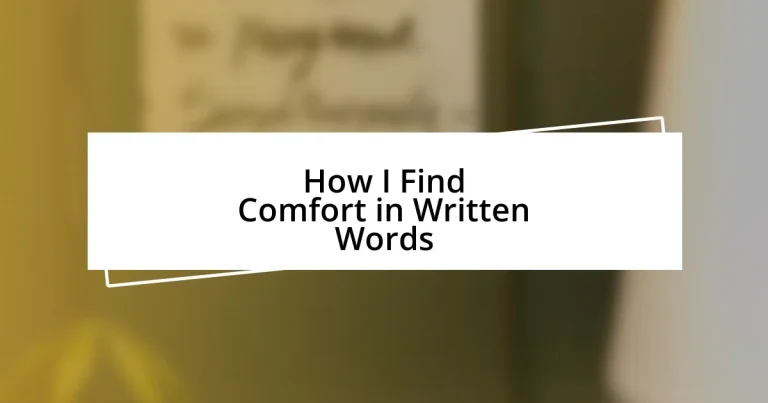Key takeaways:
- Writing is a powerful form of communication that helps articulate hidden thoughts and emotions, providing clarity and self-understanding.
- Journaling offers numerous benefits, including emotional release, stress reduction, and enhanced creativity, acting as a vital self-care practice.
- Exploring various writing styles, such as minimalist prose, poetic writing, and academic writing, can enrich personal expression and understanding.
- Creating a dedicated, distraction-free writing space enhances creativity and reflection, making writing a more immersive and fulfilling experience.
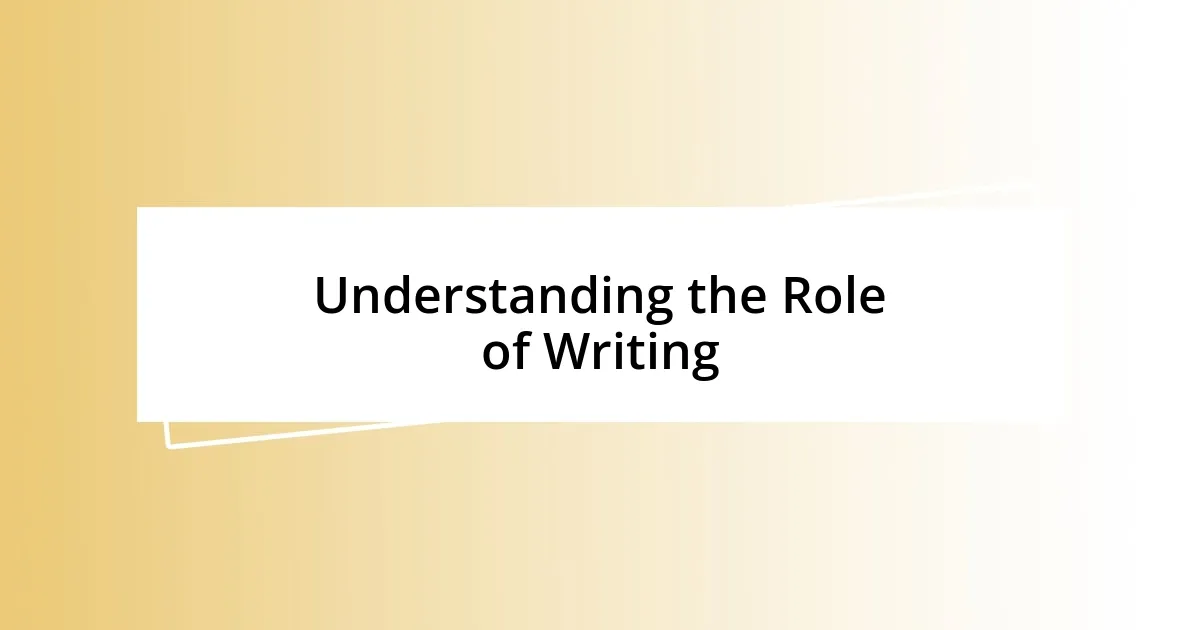
Understanding the Role of Writing
Writing serves as a profound form of communication, allowing us to articulate thoughts and emotions that might otherwise remain unspoken. I remember the first time I wrote a letter to a friend during a particularly challenging time in my life. Putting pen to paper felt like unburdening my soul—creating a safe space where my feelings could pour out without judgment. Isn’t it fascinating how written words can give voice to our innermost thoughts?
Beyond mere communication, writing helps clarify our feelings and ideas, often revealing truths we might not recognize in the chaos of everyday life. I’ve found that journaling, for instance, transforms my abstract worries into tangible phrases. In those moments, I can’t help but wonder: how many of you have experienced breakthroughs in understanding yourself through writing?
Furthermore, writing has the power to connect us with others, fostering empathy and shared experiences. When I read someone else’s story, it often resonates with my own, creating a bridge between our realities. Have you ever felt comforted by a book or a poem, as if the writer had directly reached out to you? There’s a beautiful intimacy in knowing that through writing, our experiences can echo across time and space, forging connections that soothe us.
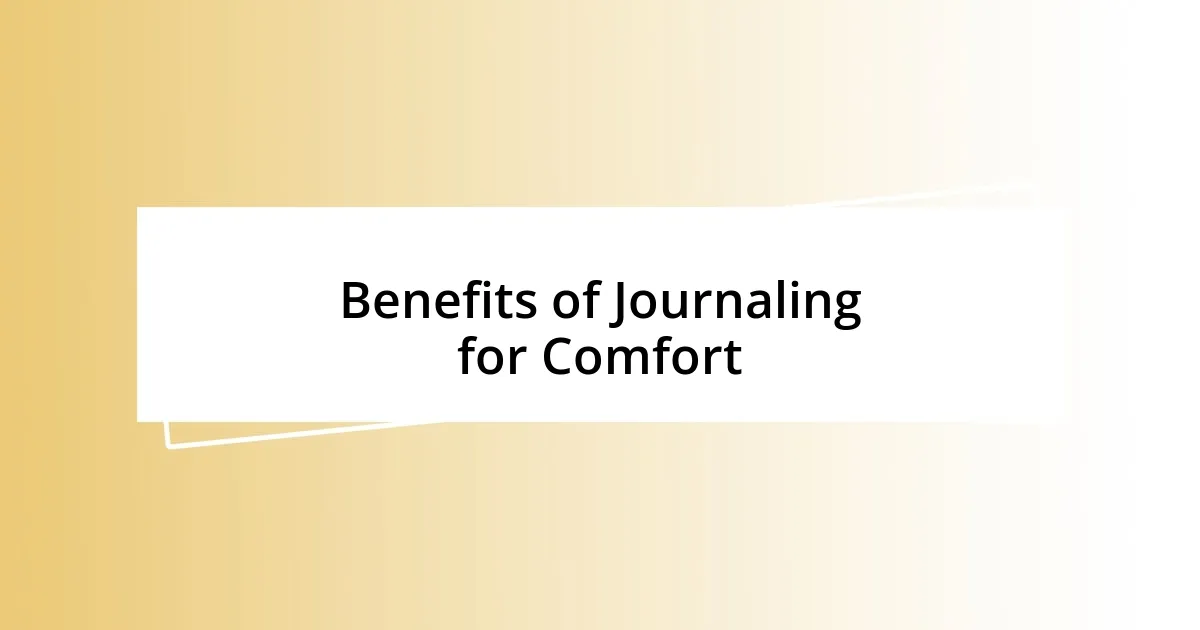
Benefits of Journaling for Comfort
Journaling has a unique ability to foster comfort in our lives. I recall a particularly tough night when everything felt overwhelming. I grabbed my journal and started writing. Each word felt like a gentle release, transforming confusion and anxiety into something more manageable. There’s something soothing about seeing your thoughts on a page—it’s almost like having a conversation with yourself that brings clarity and peace.
The benefits of journaling are plentiful. Here’s a quick look:
- Emotional Release: It provides an outlet for pent-up feelings, leading to relief.
- Self-Reflection: Journaling encourages deeper self-understanding, revealing recurring themes in our emotions.
- Stress Reduction: Writing can lower stress levels by providing a space to process difficult experiences.
- Mood Improvement: Regularly jotting down positive experiences boosts overall happiness and gratitude.
- Enhanced Creativity: It opens the mind to new ideas and solutions, transforming challenges into opportunities.
In my own experience, flipping through past entries reminds me of my growth, making me feel grounded and more at ease with life’s ups and downs. Journaling, for me, isn’t just a practice; it’s a form of self-care that brings immense comfort.
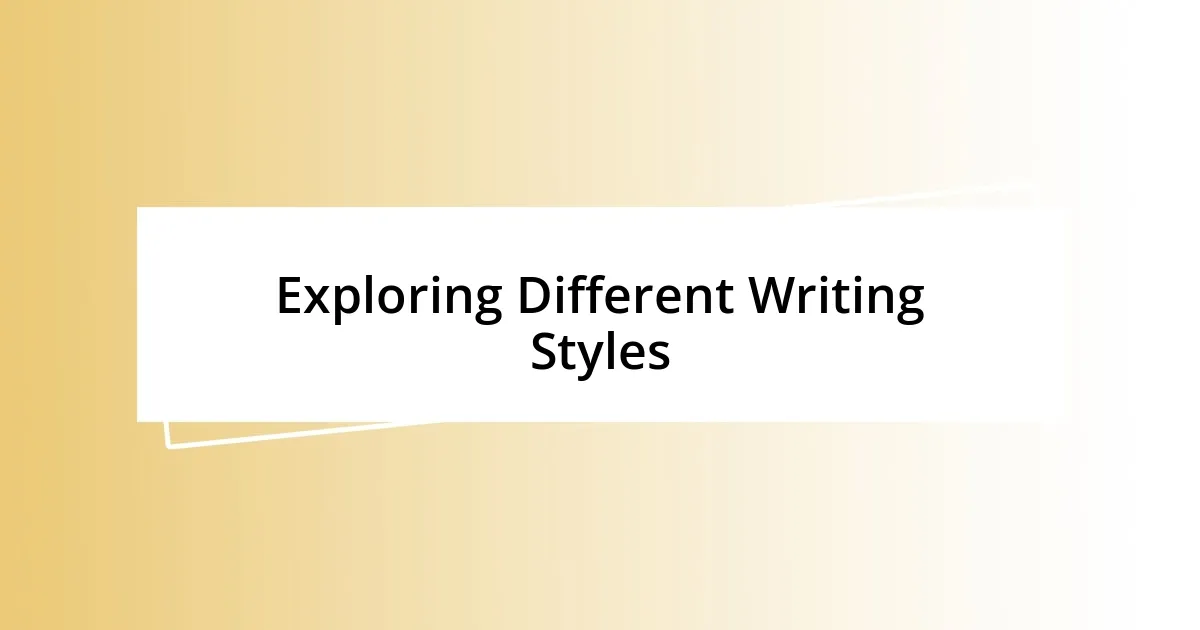
Exploring Different Writing Styles
Exploring different writing styles can be a delightful journey of self-discovery. I often find myself gravitating toward minimalist prose when I’m in a reflective mood. There’s something refreshing about getting straight to the point, allowing the clarity of thought to shine without unnecessary embellishment. This style feels like a breath of fresh air in a world full of noise—don’t you agree?
On the flip side, poetic writing captures my heart when I’m feeling particularly sentimental. I remember crafting a poem during a quiet afternoon, letting the rhythm of the words evoke emotions I hadn’t even realized were bubbling beneath the surface. The artful manipulation of language can create vivid images and stir deep feelings that linger long after reading. Isn’t it remarkable how a well-placed metaphor can resonate so personally, transforming emotions into art?
Additionally, academic writing offers a structured approach that feels comforting in times of uncertainty. I often turn to research papers when I want to explore a topic deeply, gaining knowledge from different perspectives. The formal nature of this style reassures me, guiding me through complex concepts while creating a sense of stability. Perhaps you’ve felt the same way; there’s a comfort in knowing that there’s a methodical way to uncover truths about the world around us.
| Writing Style | Characteristics |
|---|---|
| Minimalist Prose | Concise language focusing on clarity and straightforwardness. |
| Poetic Writing | Employs figurative language and rhythm to evoke emotions. |
| Academic Writing | Structured, research-based, emphasizing evidence and clarity. |
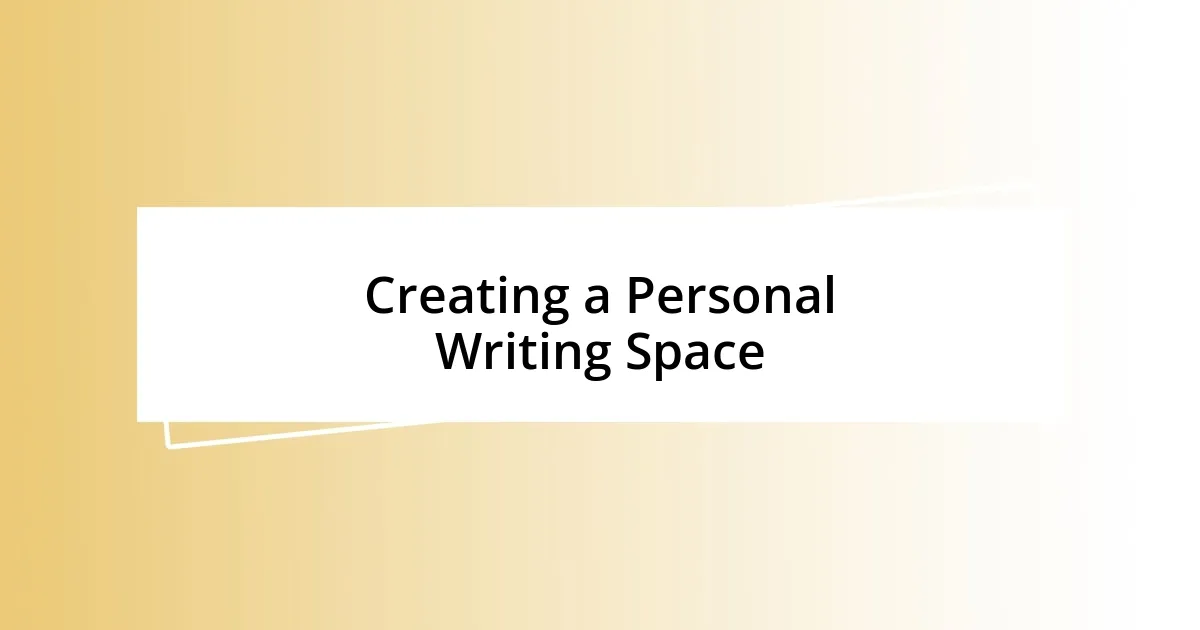
Creating a Personal Writing Space
Creating a personal writing space is crucial for unlocking the beauty of written expression. I remember when I transformed a small corner of my bedroom into my writing oasis. With soft lighting, a comfortable chair, and a small bookshelf filled with inspiring reads, it became my sanctuary. Doesn’t it feel wonderful to have a dedicated spot that invites creativity and reflection?
I also learned that personal touches matter. Surrounding myself with items that inspire me—a favorite mug, a cherished photo, or a simple plant—adds warmth to the atmosphere. There’s something deeply personal about looking up from my notes and seeing reminders of joyful memories. Have you noticed how these small elements can shift your mindset, making writing feel less like a task and more like a welcome retreat?
Lastly, I’ve found that minimizing distractions is essential. I turn off notifications and keep my phone out of reach while writing. This intentional disconnection allows me to immerse fully in my thoughts. It’s fascinating how giving yourself a space free from interruptions can lead to deeper insights. Have you ever experienced that moment when the words flow effortlessly, as if they were waiting for you in that dedicated space?
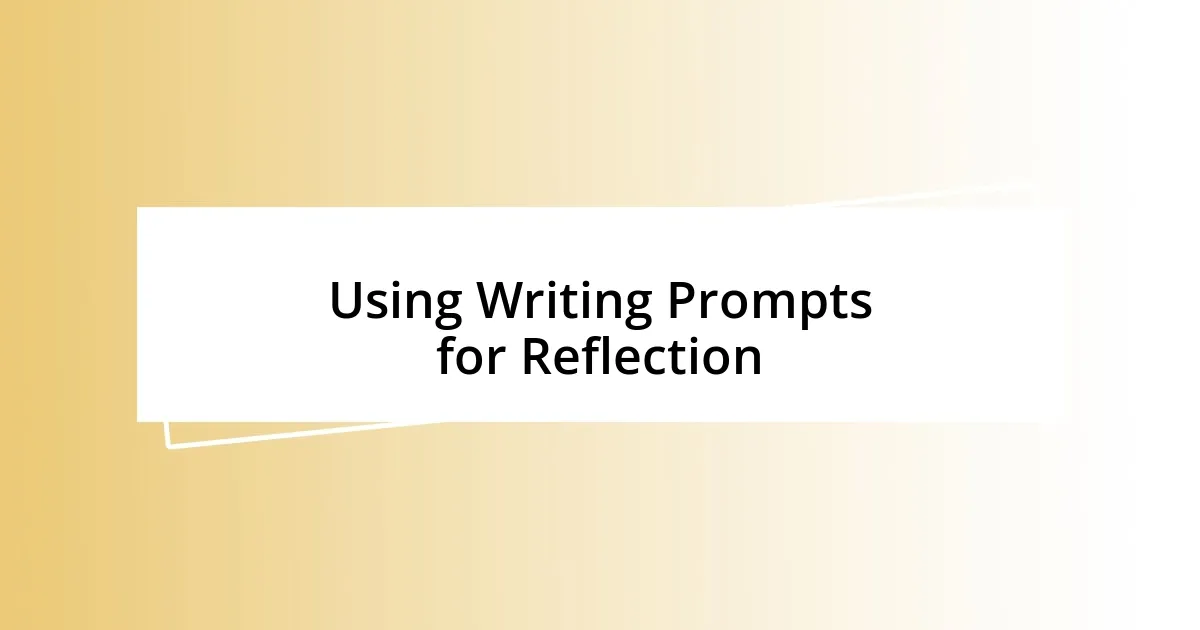
Using Writing Prompts for Reflection
Writing prompts serve as a gateway for introspection and reflection. I remember a particularly transformative prompt that asked me to describe a moment when I felt truly at peace. As I put pen to paper, I vividly recalled a serene afternoon spent by the lake, where the world felt perfectly still. It was incredible how a simple prompt could invite me to relive and unpack my emotions surrounding that experience, creating a deeper understanding of my state of mind.
Another aspect I cherish about writing prompts is their ability to spark creativity and vulnerability. When I encountered a prompt about my childhood dreams, I hesitated at first. Yet, as I began to write, I uncovered long-buried aspirations that reminded me of who I once was. This exploration often leads to unexpected insights. Have you ever found yourself reflecting on dreams you set aside? It’s amazing how revisiting those threads can reignite your passion and perspective.
I’ve also discovered that the structure of writing prompts offers both freedom and guidance. The framework invites me to explore topics I might resist without a nudge, like my fears or regrets. Engaging with these prompts has helped me confront uncomfortable feelings and acknowledge my journey. It’s almost like writing serves as a soothing balm that allows me to process emotions that might otherwise remain suppressed. How do you feel when you confront your thoughts on paper? It’s often a cathartic experience that sheds light on the parts of ourselves we’ve been ignoring.












